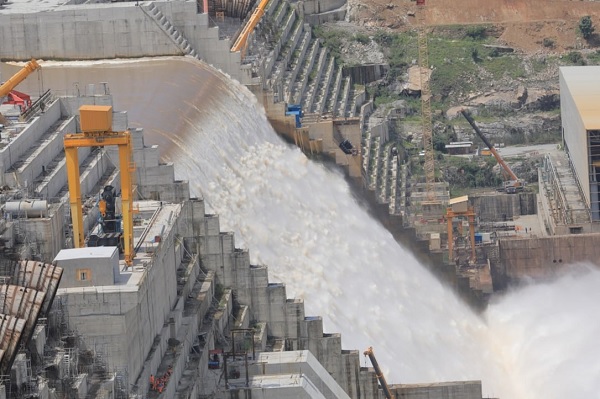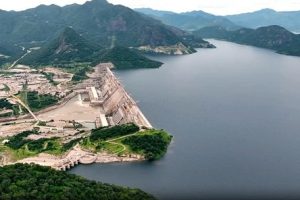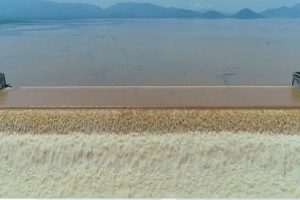
The River Nile, or Abbay, as it is called in Ethiopia, has always been a source of huge interest by many countries since time immemorial. This is so because millions of people rely on it for their survival. Sudan and Egypt in particular, depend on the waters of the Nile because they have few other water sources. This is particularly true of Egypt, which was founded on the river or would not have even survived the aridity and heat of the climate if it did not have the Nile.
Egyptians say that the Nile is everything for them. So much so that they have even claimed that it was the exclusive natural property, the historical property of its people, and no one without its express permission would be allowed to use the water. In other words, Egypt has always believed that it was the owner of the river and no one could tamper with it.
When the issue is raised and questioned that it cannot be the exclusive owner of the river as it originates from Ethiopia, they are heard arguing that based on the treaties of 1902 and then 1958, the waters of the river were divided between Egypt and Sudan, excluding totally Ethiopia. This pact was, however, facilitated and signed by Britain, which had both Egypt and Sudan as its colonies. Ethiopia was never consulted and at the time did express its objection to such an unfair pact.
For years Ethiopia did not have the means to utilize the water of the river due to several reasons not least the lack of finance to launch any sort of project on it. Fortunately, Ethiopia had alternative sources of water such as abundant rain and internal rivers such as Awash, which begins and ends in Ethiopia and others such as the Omo River and Genale. However, it had only a couple of dams to provide energy for the country, which had little industrial needs, as there was very little progress and the country relied only on agriculture, which was facilitated by the seasonal rains.
Today, the situation of Ethiopia is not as it used to be five or six decades ago when the population itself was less than twenty million. Today the population of Ethiopia is estimated to be even more than 130 million becoming the second most populous country in Africa behind Nigeria. And at the current pace, it will soon reach two hundred million! All these people have multiple needs for their livelihood and one of the key elements that they need is energy to feed its various industrial plants. The only remedy hence is to construct a dam that would solve this problem once and for all and bring light to the millions of Ethiopians who are condemned to live in darkness.
Ethiopia has always sustained that it has the legitimate right to develop and use its natural resources and one of them is the Nile waters. Such right cannot be curtailed by any force because it is a matter of sovereignty. The claims of downstream countries that Ethiopia has no right to use the Nile are hence not only unacceptable but also against international law and practice. No one in the shoes of Ethiopia would accept such an encroachment on the use of a natural right.
Ethiopia has never threatened to block the water but to share it with its neighbors use it for generating power and then release it. This is a practice that is used in many transboundary rivers such as the Danube, Rio Grande, and others. Countries have settled the use of their resources based on international law and practice. There may have been disagreements on the way they shared the resources, but in the end, they always managed to settle their disputes peacefully and managed to go ahead.
The case of Egypt’s objection to the use of the Nile by Ethiopia is, however, bizarre because it has no legal or moral basis. Ethiopia has repeatedly assured Egypt and Sudan that there is no intention of harming them but to develop the resource by using it to generate hydropower and nothing more.
Over the past several years, beginning from the initiation of the GERD project, Egypt has been making several objections, accusing Ethiopia of strangulating the Egyptians by taking away the water, which they said is the sole source of life for them. Egyptian politicians and academics tried to make a huge case out of it. They even tried to intimidate Ethiopia to refrain from the construction of the dam without the agreements on how to construct it and in how many years the dam was to be filled. They tried to influence the international community, seeking its sympathy and pressured Ethiopia to refrain from completing the project without consulting Egypt.
In the meantime, Ethiopia had to look for the necessary funds to pay for the project and it needed billions of dollars. It tried to look for grants, concessions, or loans from international financial institutions such as the IMF and the World Bank or friendly countries but they responded negatively alleging that Egypt has protested that no one should finance a project that is aimed to ‘destroy’ Egypt. And given the huge geopolitical influence Egypt had on several issues that relate to the peace in the Middle East where the attention of the entire world is focused, they refrained from granting any form of assistance to Ethiopia.
Ethiopia hence had to rely on its own resources and began to raise funds across the country and even from the Ethiopian diaspora. At the same time, it had to battle diplomatically making its case clear by presenting the details of the project how it intended to use the water to the world and how it intended to fill the dam once the construction is completed. It gave internationally accepted guarantees regarding the safety of the dam because it is constructed by internationally reputed companies that have the necessary expertise, know-how, and experience.
Egypt has tried to block the project even at the UN level, raising the issue at the Security Council level stating that for it, it was a matter of existence or not. However, the Security Council did not accept its repeated lobbying to condemn Ethiopia and stop the project. It however recommended that a peaceful solution be sought instead of resorting to intimidation and war-mongering.
Some Egyptian generals were heard menacing Ethiopia with an armed intervention to halt the project, but Ethiopia did not feel intimidated even if it was willing to sit down and resolve the issue peacefully. In the end, the African Union was also brought to the fray to intervene between the parties and settle things amicably. In the meantime, Ethiopia continued with its project unabated, and now after more than a decade of resisting all sorts of challenges and negative occasions, the dam is almost totally complete and the water in the dam is now full. What is more, there was no damage to Egypt and its Aswan Dam is still full.
Ethiopia’s construction of the dam has had no negative effect on the flow of the water! In a few months, the GERD will generate energy at full capacity and Ethiopia will soon be able to export hydropower and begin to earn some valuable foreign currency that it would use to go ahead with its development ventures there are so many of them. When the necessary infrastructure is completed electric light will reach every home in Ethiopia and people will not live in darkness anymore. This is hence a monumental achievement for Ethiopians and Africa as well.
During the last parliamentary session where the six-month performance report was presented by Prime Minster Abiy Ahmed (PhD), he talked about the GERD as something to be proud of because Ethiopia has successfully regained its sovereignty over the Nile, a resource that it had been deprived of for centuries. The GERD is hence an expression of Ethiopia’s sovereignty, a lesson for other African countries that should rely on their own internal resources and means rather than be blackmailed by foreign forces that put certain compromising conditions to extend them assistance.
Ethiopia has shown them that it is possible to harness local resources and finish any project that could change the lives of citizens. GERD is a result of resilience and persistence and a result of hard work in very challenging circumstances, both financially as well as diplomatically. The premier said in his report, that Ethiopia and Egypt could have settled the issue with a win-win approach rather than getting involved in a prolonged hostile confrontation based on unfounded claims.
Egyptian authorities would have done better if they admitted certain undeniable facts such as Ethiopia’s rights to develop and extricate its citizens out of abject poverty while at the same time recognizing the concerns of Egypt and that there would be guarantees that Ethiopia would never be involved in hostile moves against downstream countries recognizing that the resource is ample for all the basin countries and not be considered an exclusive property of any single country. While Ethiopians have the right to rejoice over the completion of a huge flagship project such as GERD on its own without the assistance of any foreign body or force, it should also rejoice for its diplomatic success in overcoming so many adverse circumstances.
Africa can take this lesson that in perseverance there can be shining successes and nothing is impossible to achieve in unison. Ethiopians from all walks of life voluntarily contributed to the success of this monumental project against all odds and now is nearing its inauguration once all the technicalities are completed. The premier told parliament and Ethiopians that soon GERD will be part of Ethiopian history, a testimony to the resilience and hopefulness of Ethiopians to achieve such triumph on many fronts.
Ethiopians have also shown through this project that they can achieve anything if they act together. For many this achievement recalls them Adwa where Ethiopians of all walks of life got together to foil colonialism and be respected in the international arena. In a way, Ethiopia has repeated that history today because this is also a reaffirmation of its sovereignty and legitimate rights.
BY FITSUM GETACHEW
THE ETHIOPIAN HERALD SATURDAY 29 MARCH 2025




